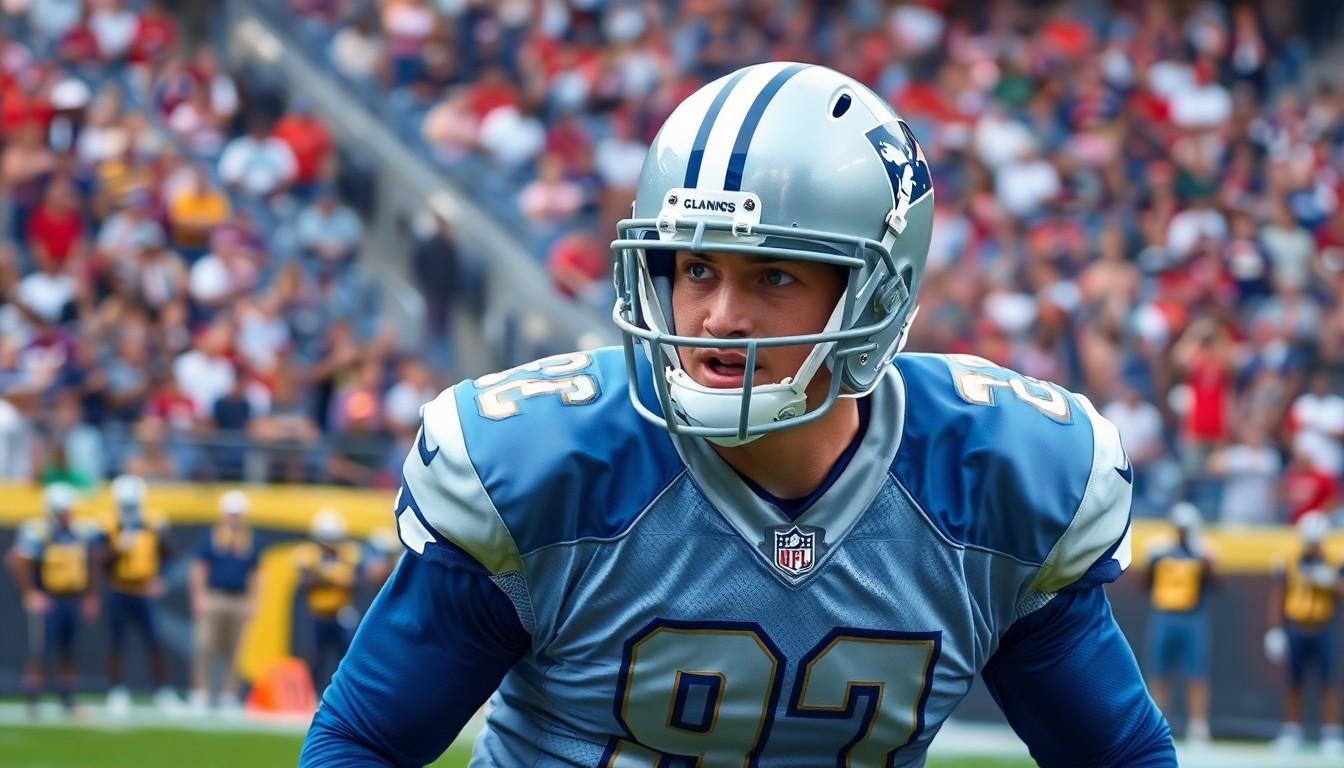In the world of football, special teams often get a bad rap, like the kid who shows up to the party just for the snacks. But let’s face it: without these unsung heroes, the game would be a lot less exciting. From nail-biting field goals to jaw-dropping trick plays, special teams can turn the tide of a game faster than you can say “touchdown.”
Sketch Special Teams Special Plays Special Players
Special teams serve a vital role in football, impacting the game’s momentum and overall outcome. They handle specific situations, including kickoffs, field goals, and punts, making them essential for scoring and possession changes. Players on special teams train rigorously, honing their skills for these critical moments.
Field goals illustrate a primary responsibility. An accurate kicker can shift a game’s trajectory with successful attempts. Their ability to perform under pressure often dictates game outcomes, reflecting the broader importance of special teams.
Punt returns highlight another critical aspect of special teams. Return specialists possess speed and agility, enabling them to advance the ball and set up favorable field positions. Strong performances can ignite team morale and shift game dynamics.
Trick plays, such as fake field goals or surprise onside kicks, showcase creativity and strategy within special teams. These unpredictable plays can catch opponents off-guard, generating excitement and turning the tide of the game. Coaches often develop unique plays tailored to their team’s strengths, emphasizing the diverse skill sets found in special teams.
Overall, special teams are much more than an afterthought in the game of football. They significantly influence momentum and outcomes, proving that every player on the field holds importance, especially during high-stakes moments.
Key Components of Special Teams

Special teams encompass various elements crucial for game success. Vital players and innovative plays come together to create impactful moments on the field.
Types of Special Plays
Trick plays often surprise opponents. Fake field goals and snap options can create scoring opportunities. Onside kicks serve a strategic purpose, allowing teams to regain possession unexpectedly. Additionally, traditional plays like kickoffs and punts are fundamental for transitioning between offense and defense. Teams utilize formations and well-rehearsed strategies for maximum effectiveness during these critical moments. Risky plays can dramatically sway a game’s momentum, showcasing the creativity inherent in special teams.
Roles of Special Players
Special players have defined responsibilities within the unit. Kickers focus on accuracy and distance during field goals and kickoffs. Return specialists excel at providing favorable field position through effective returns. Gunners are speedsters on coverage teams, tasked with preventing long returns. Each player trains specifically for their role, ensuring they perform under pressure. Collaboration among team members boosts overall success, highlighting the importance of each individual’s contribution. Special teams truly rely on skilled players, as performance impacts the game’s outcome significantly.
Notable Special Teams Plays in History
Special teams have a rich history marked by significant plays that changed the course of games. Game-changing moments often become legendary in football lore.
Game-Changing Moments
Iconic plays define special teams’ impact. For instance, the “Immaculate Reception” in 1972 featured a mistake on a field goal attempt, leading to a game-winning touchdown. Another memorable play occurred in Super Bowl XLIX, where Seattle’s surprise onside kick shifted momentum entirely. Such occurrences highlight how a single play can alter a game’s outcome, capturing fans’ attention and securing a place in history.
Innovative Strategies
Creativity shapes many successful special teams strategies. Fake field goals serve as one example, catching defenses off-guard and often leading to unexpected scoring opportunities. Utilization of precision punting can flip field position dramatically. Moreover, the growth of sophisticated kickoff returns showcases teams’ adaptations to maximize yardage. Each innovative play requires strategic planning that hinges on execution and timing, proving that special teams can be crucial in high-stakes scenarios.
Profiles of Influential Special Players
Special players on football teams influence the game significantly through their leadership and unique skills. Each player contributes to special teams’ dynamic, setting a foundation for pivotal plays.
Leadership and Impact
Effective leadership defines special teams’ performance. Players such as Matthew Slater have inspired teammates through consistent communication and determination. This influence can elevate team morale, instilling confidence during critical moments. Leaders on special teams ensure players remain focused and ready for unexpected challenges. Often, these individuals serve as role models, reinforcing the importance of discipline and teamwork in executing plays. Ultimately, solid leadership translates to impactful performances on the field, influencing game outcomes.
Skills and Attributes
Special players possess unique skills essential for success. Kickers exemplify precision with their accuracy in high-pressure situations, making them invaluable during field goal attempts. Return specialists showcase agility and speed, essential for advancing the ball effectively. Gunners require tenacity and tackling skills, preventing opponents from gaining substantial yardage. Strategic awareness also plays a crucial role, as players must quickly adapt to unpredictable game situations. Each attribute, cultivated through rigorous training, contributes to creating memorable moments during games, solidifying their importance in special teams’ overall effectiveness.
The Game’s Excitement
Special teams deserve recognition for their pivotal role in football. They’re not just an afterthought but a dynamic force that can change the course of a game. Each play they execute—from field goals to trick plays—requires precision and strategy.
The players on these units bring unique skills and leadership that elevate team performance. Their rigorous training and collaboration are essential for success. As fans appreciate the game’s excitement, they should also celebrate the special teams that create those unforgettable moments.
Ultimately, special teams embody the spirit of teamwork and innovation, proving that every player contributes significantly to the game’s outcome.

